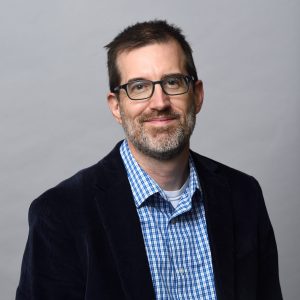
Benjamin W. Schafer
Longer life, ample food, indoor heating and cooling, increased mobility, higher productivity – since the Industrial Revolution energy use has been foundational to humanity accruing these benefits. Today, life is completely intertwined with energy, so accepting and acting on the fact that our past energy use has also been responsible for changes in our planet and climate and places us on a path to risk all that we have gained can be a fraught and complex matter for society. Founded in 2021, the Ralph O’Connor Sustainable Energy Institute (ROSEI), was created to grow and provide a nexus for all of those in the Johns Hopkins University community that wanted to innovate and assist in transitioning our energy use towards a sustainable path.
ROSEI includes faculty in engineering, science, social science, and more – 13 of which were hired by ROSEI in its first four years. ROSEI also includes research scientists and scholars, postdoctoral scholars, and graduate students all dedicated to energy innovation. These researchers are supported by a phenomenal staff that ensures ROSEI’s members are supported in strategy, partnerships, finances, events, programming, communications and more. ROSEI is “Energy at Hopkins” our tagline to convey our dual role as the center of energy research at Hopkins and our collective mission to put everything we have into growing our impact in this important work.
Energy innovation is core to ROSEI’s research mission – in our first four years we created initiatives in carbon, storage, wind, and grid that has led to new companies, new national research centers, new partnerships, foundational breakthroughs, and critical guidance for policy makers and organizations working in energy. On this website you will learn more about each of these successes and the people that make our advances possible. Today, we are expanding on these initial pillars to recognize our growing expertise with new multidisciplinary energy research efforts in data centers, nuclear energy, sustainable manufacturing, sustainable fuels, solar energy, building energy efficiency, and more. Our researchers are working every day to provide new innovations that make it easier and more effective for society to embrace sustainable energy and its benefits.
As a university institute, education is central to our goals, and we use our efforts as a catalyst to bring more talent into sustainable energy, and expand the opportunities and impact for those that join us in our work. ROSEI seeded and partnered a new high school program in sustainable energy, manages a summer research site for undergraduates to study sustainable energy, manages an energy minor for Hopkins undergraduates, and sponsors and supports multiple student organizations in energy. For the graduate students ROSEI faculty teach the energy courses across the school, and we provide PhD and postdoctoral fellowships. We also enable and support peer affinity groups for all of the graduate students and postdocs in energy and technical affinity groups in energy for our researchers in catalysis, AI, and optimization. We are using our collective expertise in energy to train a new generation of energy experts versed in their disciplines, and able to understand and contribute more broadly to the role energy systems play in society.
ROSEI’s mission aligns our faculty towards impact, especially energy policy, and commercial translation. Our policy work partners deeply with the organizations and states that are modernizing the electrical grid, and provides critical insights on our energy choices. ROSEI expands deep university-wide commitments to democracy and policy (through Agora, SAIS, the new School for Government and Policy, and others at Hopkins) and provides energy specific depth and advocacy to these efforts. Commercial translation is a key component of our initial research pillars, and we have had success with companies emerging from our efforts. ROSEI helps enable students and faculty to take their energy ideas from inception to commercial reality with courses, specific cohort groups focused on energy translation, connections to private capital, assistance with state and federal funding, as well as providing a focal point into energy for corporate, foundations, and technology ventures of the university,
Partnerships allow ROSEI to increase its scope and impact immensely. At the university our partnerships are manifold crossing and merging with departments, schools, divisions, institutes and the many organizations that make Hopkins effective – none more so than our partnership with the Whiting School of Engineering, and the Bloomberg Distinguished Professor team in the Provost’s office. The national labs play an instrumental role in U.S. energy research – and ROSEI facilitates formal partnerships with the labs, as exemplified by our deep interactions and jointly appointed faculty at PNNL and NREL. ROSEI also works with the strategic companies that are instrumental to sustainable energy scale-up, such as GE Vernova. Every aspect of ROSEI has a multitude of partnerships that are helping us succeed, and we celebrate and thank each of them for their contributions to ROSEI.
With this summary, I have tried to give a sense of all that ROSEI has accomplished and is involved in after just four years in existence. Undoubtedly, I have missed important stories – I encourage you to browse this website to learn more for yourself. At ROSEI’s inception I coined a simple phrase “Civilization requires energy, humanity requires more.” We do not shy away from the challenge of keeping our humanity and our planet as our civilization employs energy to advance our needs – instead we grow and educate those that contribute to the work, innovate to provide solutions that can change the dispiriting calculus that can overcome decision-makers, and work tirelessly to bring our findings to the world in the form that will have the greatest impact for sustaining all of us.
Sincerely,
Benjamin W. Schafer
Director, Ralph O’Connor Sustainable Energy Institute (ROSEI)
Willard and Lillian Hackerman Professor, Civil and Systems Engineering
Johns Hopkins University
- Please click here to see the “Message from the Director” from 2024
- Please click here to see the “Message from the Director” from when ROSEI was first founded
